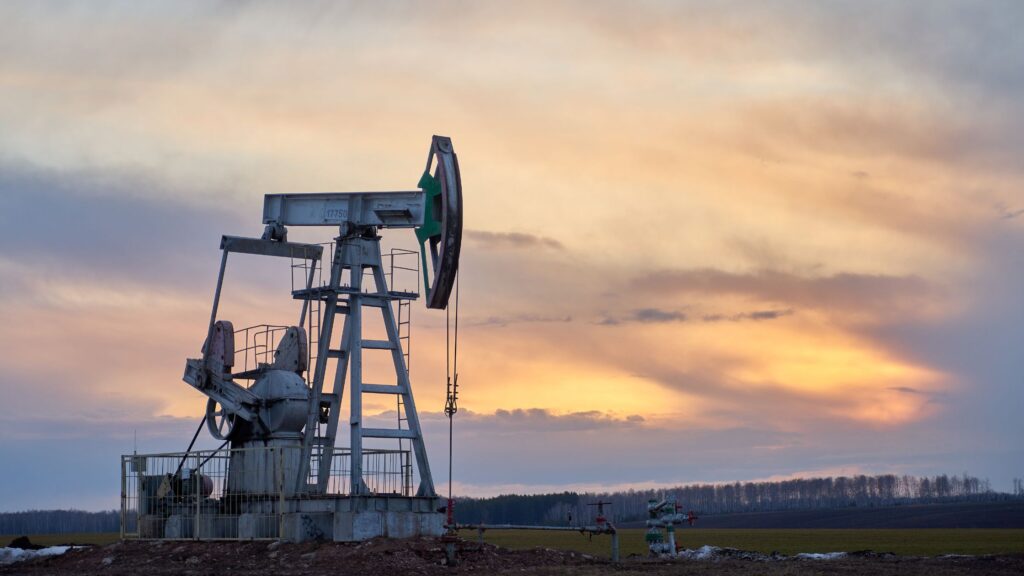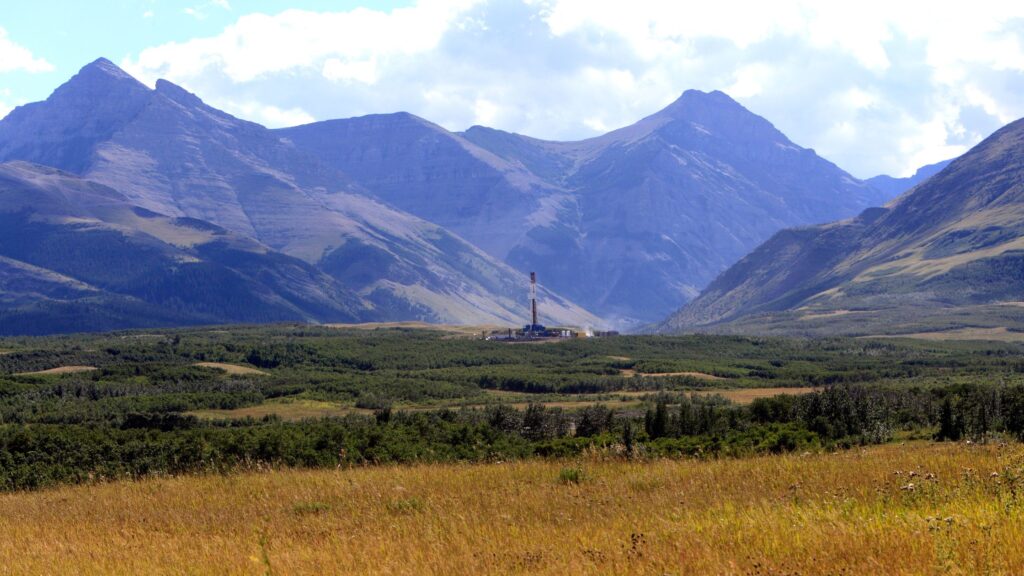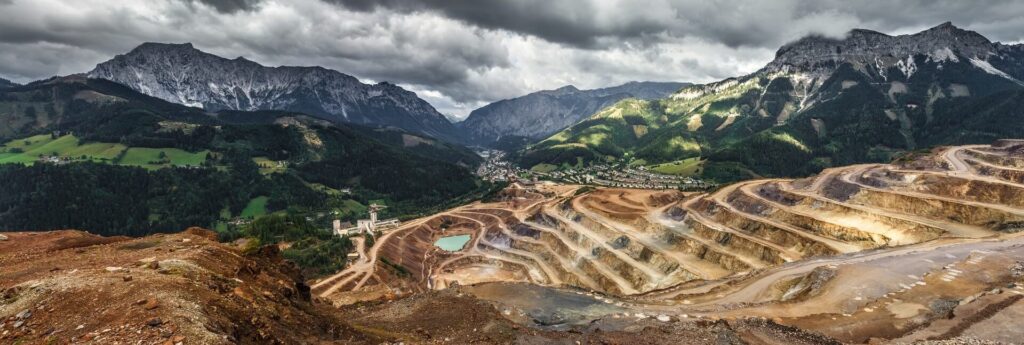In the United States, unlike in many countries, property owners may own the surface and mineral rights to a property or piece of land unless the mineral rights are sold to another party.
Anyone who owns both surface and mineral rights may sell their mineral rights but choose to retain the rights over the surface of the land. As a result, any right to explore and exploit underground mineral resources will pass to the new owner of the mineral rights.
Below, we outline the steps to take in order to answer the question: do I own the mineral rights to my property?
What Are Mineral Rights?
Mineral rights refer to the ownership rights of any underground resources, including metals and ores, fossil fuels, and rocks like salt and limestone. These rights entitle the mineral owner to undertake the exploration of any natural resources below the surface of a particular piece of land.
In the United States, private individuals can purchase a piece of land and hold mineral interests to exploit the resources beneath the land. This originates from an old initiative to encourage settlers to develop the land.
Nowadays, three mineral estate scenarios exist:
- A unified estate: one party owns both surface and mineral rights.
- A split estate: different parties own the surface and mineral rights. The rights are separate from each other, having been ‘severed’ at some time in the past.
- A fractional estate: multiple parties own a share of the mineral rights.
As mentioned, oil/gas mineral rights may be sold separately from surface rights. In some states (Texas), the surface estate and mineral estate are separated. A statement in the title deed transfers the property but retains the rights to any minerals.
Another way to separate a mineral estate and surface estate is through a mineral rights transfer while retaining the land.
How Do I Find Out Who Owns The Mineral Rights To My Property?
As a property rights owner, you may discover minerals on your land. The next step is to determine if you are the legal owner of the property’s mineral rights or not.
You will not hold the mineral rights as the surface owner of the land if the previous owner sold the mineral rights to another party before selling the property to you. This is an example of a mineral estate and surface estate sold separately.
How to search mineral rights records?
There are a few different ways to search for mineral rights records.
- County Records and Tax Assessor’s Office: The first step is to determine in which county the land is located. Once you have the county, you can contact the county records office and ask for a list of property records.
- Royalty deeds: You can also search for royalty deeds, documents that transfer mineral ownership from one party to another. Contact the county clerk’s office or the landowner directly to try and find these deeds.
- Federal and state agencies: Another option is to search for records through federal and state agencies. For example, The Bureau of Land Management keeps records of all public lands in the United States.
Other ways to search for records include:
Search the courthouse
If you need to find a particular document related to a mineral rights owner, try searching the local courthouse for it. The process will vary depending on the type of document you’re looking for and the courthouse where it’s located. In general, you need to fill out and submit a request form.
Hire a title company to research mineral ownership
To ensure that your deed is accurate, research the chain of ownership. Perform a title search to discover if the mineral rights were sold in the past.
Use the services of a professional landman
You can also employ the services of a professional landman to make the search easier.
Hire an Attorney to Help Determine if you Own Your Minerals
To avoid legal issues, hiring the services of an experienced attorney can be helpful. A lawyer can render advice on the law and authenticate deeds and other documents.
State bar associations have an attorney referral program. Use the program to find a competent mineral rights attorney in the area.
Authenticating your deed
An attorney can ensure that you legally own any mineral rights once you have a copy of the deed. You should also note the following:
Were you conveyed a fee simple property title? Property deeds and historical deeds always indicate if an individual owns mineral rights in part or wholly. Beware because property deeds might be inaccurate. If you were conveyed a fee simple title, the original mineral rights might have been sold/transferred previously.
Therefore, it is vital to do a legal title search.
Setting up the search parameters
Some researchers might be reluctant to search for titles many years back. For example, some companies will only trace the ownership chain of title for 30 years. So you must clarify the search parameters, as the mineral rights might have been sold more than 100 years ago.
Additionally, confirm if the title company will negotiate the extent of the search. If cost is an issue, ask the title researcher for a “take-off” – a list of records where you will find relevant deeds.
Read our article to learn more about how to search mineral rights records.
Are mineral rights inherited?
Yes, mineral rights can be inherited. It depends on whether the mineral rights were severed from the rights to the surface estate in the past. If that is the case, you hold no rights to any valuable minerals beneath the land even though you inherited the land.
What to do after you have located mineral rights on your property?
The next step before you try to make any money is to value your mineral rights. Many mineral owners struggle to determine the accurate value of their mineral rights. Indeed, as mineral production levels and commodity prices vary, the value of any mineral rights changes accordingly.
A property rights owner should not ignore the importance of mineral rights valuation. Buyers and sellers often try to get the lowest and highest prices. A mineral estate owner must determine a fair price by valuing rights accurately.
As a property owner with legal mineral rights, you can determine the best way to profit from the minerals on your land. Below are some options.
Oil & Gas Leases
An oil company may wish to develop the area, so its representatives might contact you with an offer to lease the minerals. Alternatively, you could approach them to make an offer to lease the minerals.
Sell all or a portion of the minerals
You can offer your mineral rights for sale. Many companies specialize in buying mineral rights from landowners. Some owners decide to put a portion of their rights up for sale. However, proper due diligence is essential. Take the time to research any oil companies you intend to sell your rights to.
Invest in the development of the minerals
You could choose to participate in the development of the minerals. Generally, owners have the right to hold a working interest in developing the minerals on their property.
Rather than lease the minerals to an oil and gas company and collect mineral royalties, payments, and bonuses, you could choose to become a working interest owner. In this case, you will share the costs and profits associated with exploiting the minerals. Your share of the production costs and resulting profit will be proportional to your mineral ownership.
For example, your mineral acreage represents 20% of the drilling unit, so you will be responsible for 20% of the total drilling and operating costs. However, you will also receive 20% of the profits from the minerals extracted. Even if you do not discover a literal gold mine – many other minerals produce an excellent ROI.
With a working interest, you have a similar position to the oil and gas company, such as paying property taxes, observing regulations, and other essential responsibilities.
What does it mean if you don’t own the mineral rights to your property?
Mineral rights only come into effect when digging a certain depth below the surface of a property to extract minerals. As a surface owner, without owning the mineral rights to your property, you have no legal ability to explore, exploit, or sell the minerals. The power to do that lies with the owner of the rights or the mineral estate owner. You will likely face legal consequences if you attempt to extract resources you have no right to.
Conclusion
Mineral resources are in abundance underground and have contributed enormously to global development. However, they must be discovered and exploited to be of value.
Land ownership alone does not convey a right to extract minerals. To do so, you must demonstrate ownership of the mineral rights for the property.
The government controls mineral rights for coal, oil, natural gas, silver, and gold on public lands in individual states such as New Mexico, Texas, Oklahoma, Louisiana, Colorado, Pennsylvania, and others.
A land-owning individual in the United States may also be a mineral estate owner regardless of the kind of minerals beneath the surface of the land. This ensures that property owners can hold the surface rights and underlying mineral rights.
As a result, a mineral owner can sell or lease their rights to private corporations and get paid in return. It is also possible to have both the mineral estate and surface estate separated.
If you have any questions or need a consultation, feel free to contact us. Pheasant Energy has 70+ years of experience helping landowners make the most of their mineral interests and is one of the leading non-operating oil and gas companies.







